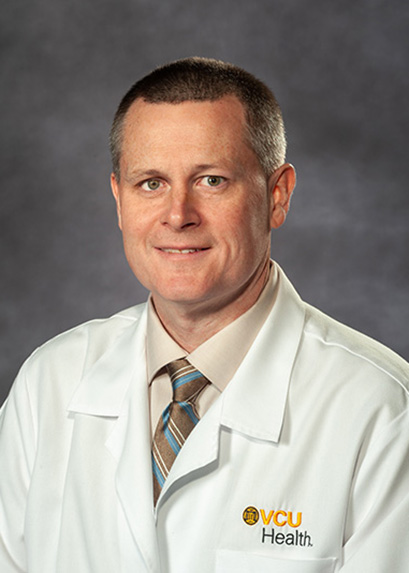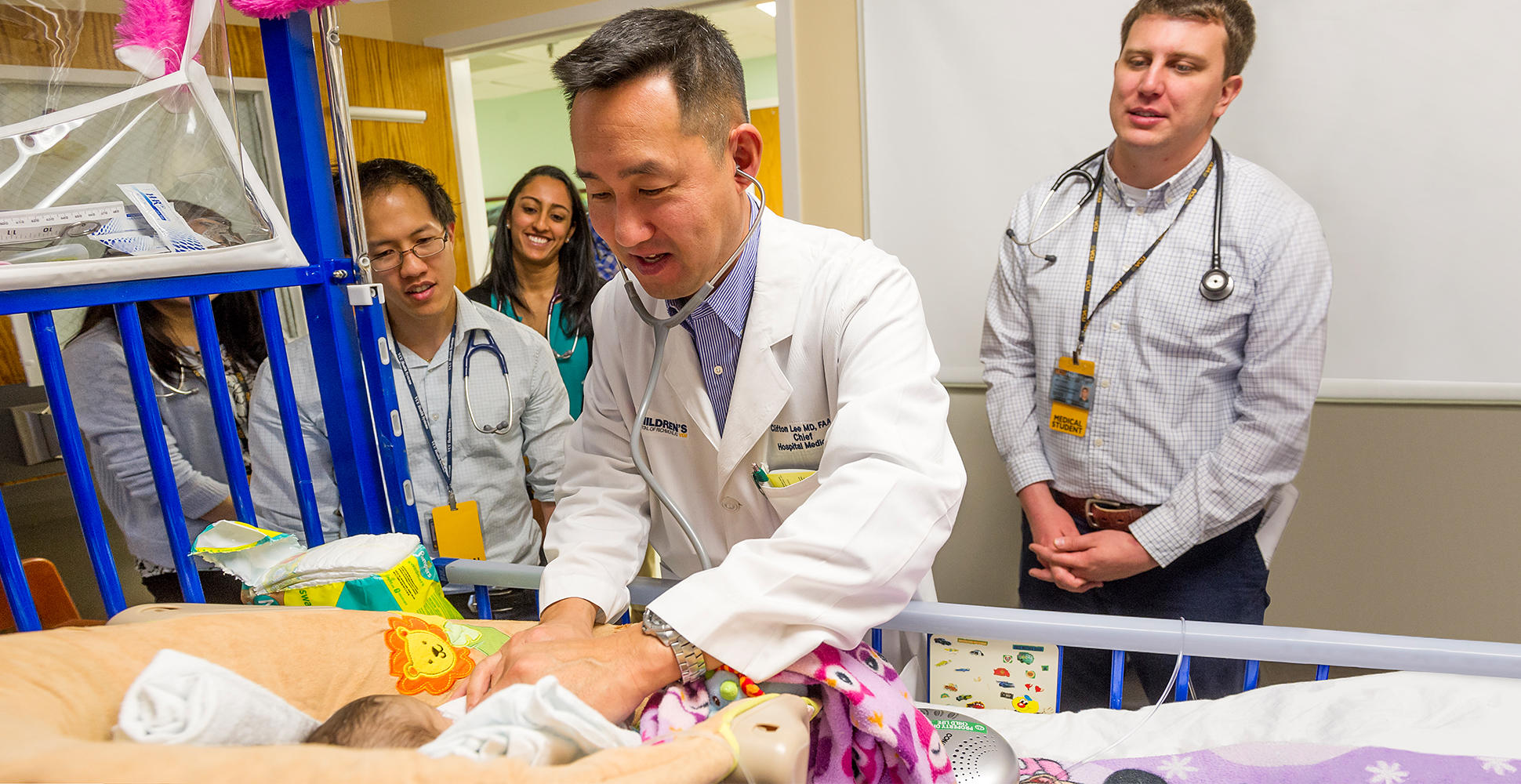
“At VCU, our Med-Peds residents receive an unparalleled clinical education in a supportive and collegial environment that emphasizes patient safety, quality, evidence-based medicine and collaboration.”
David Friedel, M.D., Med-Peds Program DirectorThe Combined Internal Medicine-Pediatrics Residency Program at VCU Health was founded in 1989 and has a rich tradition of training exceptional internists and pediatricians. The program's innovative, competency-based curriculum allows residents to develop expertise in both disciplines. Residents receive integrated clinical and didactic training from housestaff and faculty in the categorical and combined programs, as well as faculty with active practices in internal medicine and pediatrics.
Our Mission
The Combined Internal Medicine-Pediatrics Residency Program at VCU Health is dedicated to training highly qualified physician leaders in an inclusive environment that promotes excellence in clinical care, compassion, collaboration, cultural humility, and intellectual curiosity.
Program Aims
- To train compassionate physicians capable of delivering high quality, evidence-based care across the lifespan
- To educate residents about best practices and successful transitional care models for adolescents and young adults with chronic medical conditions
- To provide residents with broad exposure to generalist and subspecialty care in a variety of practice settings in order to prepare them for careers in primary care, academic medicine, or advancement to fellowship training
- To promote leadership development and excellence in teaching
- To foster a commitment to lifelong learning in the context of a rapidly changing healthcare environment
- To provide residents with an exceptional foundation in the principles and practice of quality improvement / patient safety in order to lead practice improvement initiatives throughout their careers
- To support healthy work/life balance, resiliency, and resident wellness throughout training
Benefits
Our residents earn competitive salaries and receive paid vacations, annual professional education funds, the option to have a hospital-issued cell phone, and many other benefits. Visit the VCU School of Medicine's Graduate Medical Education page for a complete list of benefits and resources.
Training facilities
Residents spend most of their training at VCU Health, which includes the Children's Hospital of Richmond at VCU. Additional satellite sites are located throughout the Richmond metropolitan area. The key training facilities include:
- VCU Health: a university-based, academic medical center that serves as a safety-net hospital for an inner-city population and a tertial referral center for the mid-Atlantic region. We have over 40,000 inpatient discharges, 1.8 million outpatient visits, and over 100,000 emergency department visits annually. In addition to serving as the main site for adult care, VCU Health also houses maternal-infant services including the well-baby nursery and neonatal intensive care unit.
- Children’s Hospital of Richmond at VCU (CHoR): includes the Children's Tower, a state-of-the-art, free-standing children's hospital (opened 2023) and the adjacent Children’s Pavilion, which provides comprehensive pediatric ambulatory care
- Central Virginia Veterans Affairs Health Care System: located within a 10 to 15 minute drive from the VCU medical campus, residents spend about one-third of the internal medicine component of their training here
Patient Population
VCU Health strives to preserve and restore the health for all people of Virginia and beyond through innovation in service, research, and education. The patient population at VCU Health is diverse, and there is a broad range of pathophysiology, including common and uncommon conditions. The institution is a tertiary referral center with over 200 clinical specialties represented. However, VCU Health is also the state’s leading safety-net hospital, providing primary and subspecialty care to vulnerable patient populations who are often under- or uninsured. Med-Peds residents develop confidence in caring for this diverse population while developing a deeper appreciation of social determinants of health, the role of community advocacy, and the importance of culturally sensitive care.


